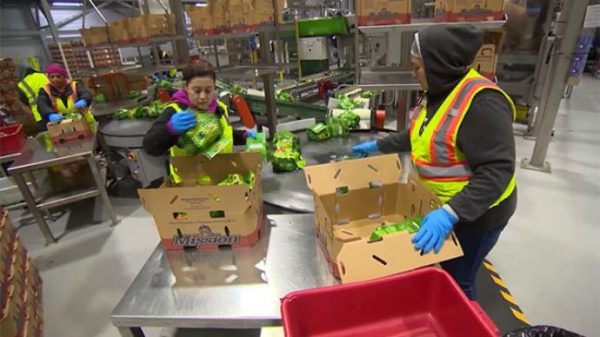New technology reducing food waste – WCAX
OXNARD, Calif. (CBS) The USDA says up to 40 percent of food in the U.S. ends up getting tossed, often because it goes bad before it’s eaten, but new technology is extending the lifespan of fruits and vegetables.

Inside this cardboard box are Hass avocados, ready to be shipped to northern California. Employees at mission produce in Oxnard have to move quickly because ripe avocados only have 2 to 4 days of freshness.
But Patrick Cortes with Mission Produce says a new technology is changing that. “This is it. And, it’s as simple as throwing a packet in a box,” Cortes said. “We’ve been able to extend the shelf life 2-4 days when fruit’s ripe.”
According to developers, this pouch slows down the chemical process that causes decay. It contains a blend of materials like dirt and sand along with the active ingredient 1-Methylcyclopropene, or 1-MCP, which interacts with the ethylene gas that is naturally released from the avocado and slows down the ripening process.
“It’s not contacting the produce, no chemistry added into the food supply, but by controlling that atmospheric response to the ethylene we can extend the shelf life of the produce,” said Aidan Mouat with Hazel Technologies, the packet’s maker.
Each packet can treat 25-pounds of produce and costs $1. “Since 2018, we have saved about 130 million pounds of produce from going bad,” Mouat said.
There are other produce preservation technologies in the works. Apeel Sciences claims to cut food waste in half by spraying produce once with a formula made from fatty acids of natural peels, seeds and skins. Cambridge Crops makes an edible, protective coating made from natural silk proteins.
Cortes says the Hazel packets make it possible for him to ship to new markets like India and China.
Reporter Marin Austin: Would you call this packet a game changer?
Patrick Cortes: Absolutely. We can reduce waste retailers see at store level. We can increase positive experiences the consumer has with avocados.
And he says less food rot means he’s saving money and so are the grocery stores he ships to. Whether that leads to cheaper guacamole remains to be seen.






